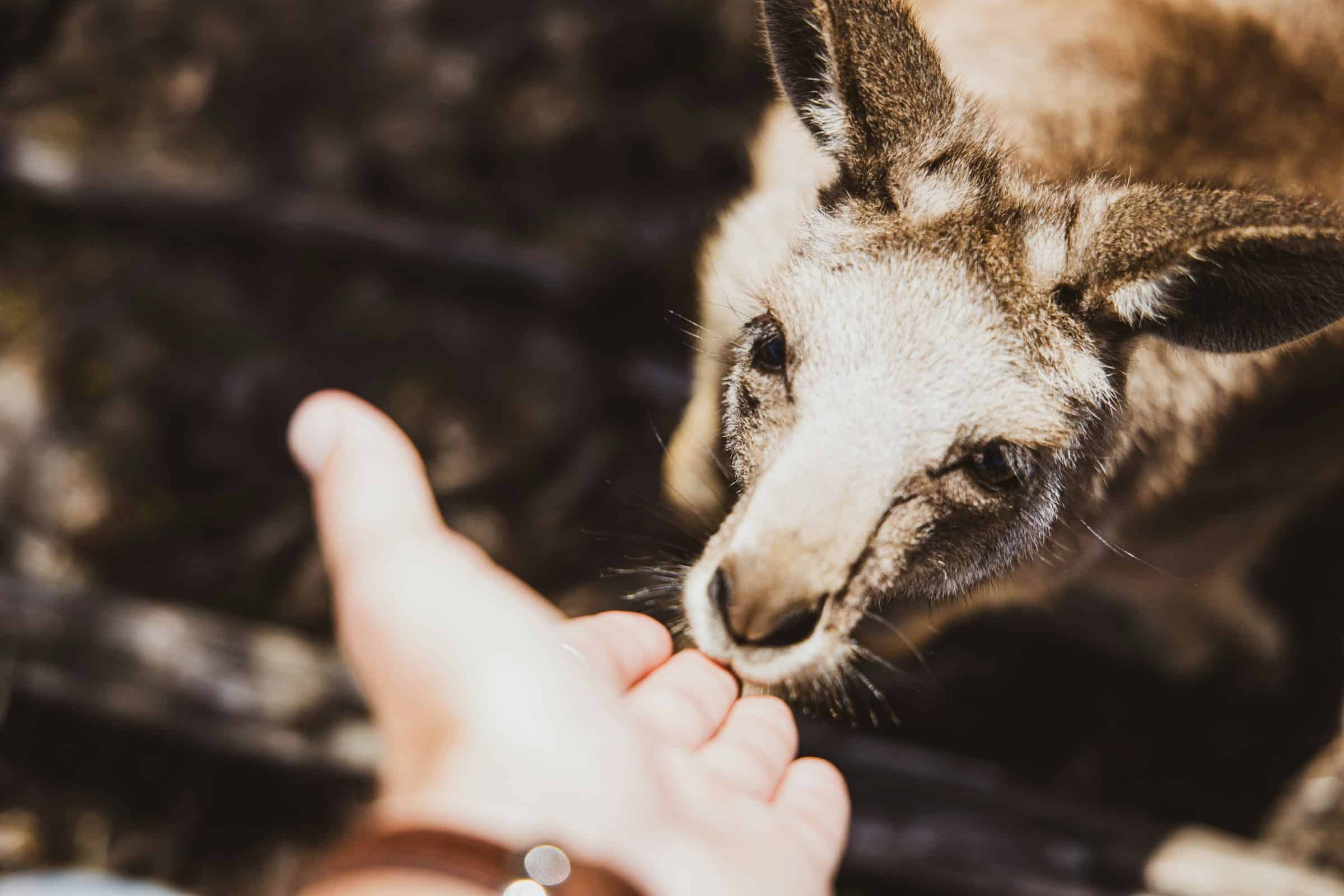What actions are UK national parks taking to educate visitors about the importance of not feeding wildlife?

Wildlife in national parks is a spectacle to behold, creating memorable encounters for visitors. However, it is vital to understand that these animals are not pets and feeding them may disrupt their natural diet, causing health problems and behavioural changes. In response, UK national parks have launched various initiatives to educate the public about the importance of not feeding wildlife. This article delves into the specific actions taken in this regard.
Public Awareness Campaigns
UK national parks are committed to creating a harmonious coexistence between wildlife and visitors. One of the chief approaches to achieving this is through public awareness campaigns. These campaigns are designed to inform visitors about the negative impact of feeding wildlife.
A lire aussi : How do the UK's offshore wind farms plan to mitigate their impact on migratory seabird routes?
The campaigns take different forms, including, but not limited to, distributing leaflets, erecting signage, and using park rangers to communicate the message directly to visitors. For instance, according to a study conducted by scholars at the University of East Anglia in England, several national parks have placed signs in strategic areas reminding visitors not to feed the animals.
These campaigns also use digital platforms for wider reach. Using Google and other social media platforms, they educate the public on the need to observe park regulations, especially those that prohibit feeding wild animals.
Lire également : What are the impacts of UK's recent forestry regulations on red squirrel conservation?
Visitor Education Programs
Education is paramount in promoting wildlife conservation. Therefore, many UK national parks run various education programs for their visitors. These programs are tailored to address a wide range of topics, including wildlife feeding.
In these programs, visitors are taught about the natural diet of different animal species and how introducing supplemental food may harm them. They also learn about the critical role that each species plays in the ecosystem, hence the need to protect them.
The education programs target all categories of visitors, from schoolchildren to adults. The information is presented in an easy-to-understand manner using visual aids, hands-on activities, and engaging presentations. Some parks even offer guided tours where park rangers explain the park's wildlife and the importance of not feeding them.
Regular Assessment and Revision of Park Policies
UK national parks are not static but engage in regular assessment and revision of their policies. This also applies to the policies related to wildlife feeding. Parks continually evaluate the effectiveness of their existing policies and make necessary adjustments to ensure that they serve the intended purpose.
Some parks have gone as far as restricting public access to certain areas during specific periods to limit human-wildlife interactions. Others have instituted stiff penalties for individuals caught feeding wildlife, which acts as a deterrent.
The regular assessment and revision of these policies ensure that they remain relevant and effective in curbing the problem of wildlife feeding.
Collaborations with Conservation Bodies and Scholars
Collaborations play a significant role in enhancing the efforts of UK national parks to educate visitors about not feeding wildlife. They collaborate with conservation bodies, scholars, and other relevant stakeholders to gather necessary information and resources.
These collaborations help parks to gain a deeper understanding of the issue, thus enabling them to tailor their educational campaigns and programs effectively. For instance, through collaborations with scholars, parks can access the latest research findings on wildlife feeding and its effects, which they can incorporate into their education programs.
Conservation bodies also provide valuable resources, including educational materials, expert speakers for visitor education programs, and more. This shared knowledge and resources significantly boost the parks’ efforts to educate visitors about the importance of not feeding wildlife.
Utilising Technology for Education
In today’s digital age, technology offers an effective tool for education. Recognising this, UK national parks are increasingly leveraging technology to educate visitors about not feeding wildlife.
Through their official websites and mobile apps, parks provide a wealth of information about their wildlife and the importance of not feeding them. They also use these platforms to relay real-time information to visitors, such as reminders not to feed wildlife.
In some parks, technology is used to monitor wildlife behaviour. Any changes, such as those that could result from wildlife feeding, are promptly communicated to visitors. This not only serves to educate them but also invokes a sense of responsibility towards wildlife conservation.
By taking these actions, UK national parks are playing a pivotal role in fostering a culture of wildlife conservation among visitors. Through education, they are not only preserving their rich wildlife heritage but also ensuring enjoyable and sustainable park experiences for all visitors.
Collaborations with Local Schools and Community Groups
UK national parks are also reaching out to local schools and community groups to educate them about the importance of not feeding wildlife. Collaborating with these establishments allows the parks to broaden their reach and impact on a community level.
Schools play a crucial role in this education drive. Park authorities engage with schools to incorporate lessons about wildlife and conservation into their curriculum. Children are taught about the importance of wildlife conservation, including the detrimental effects of feeding wild animals. The use of visual aids, field trips, and interactive presentations make these lessons engaging and memorable for the students.
Community groups are equally important in these initiatives. National parks in England and Wales, for example, have been known to collaborate with local scout groups, environmental NGOs, and other community groups. These partnerships enable the parks to reach a wide demographic, from young children to adults.
By partnering with these groups, national parks are able to instil a sense of responsibility towards wildlife conservation at a community level. This fosters a culture of respect for wildlife and their natural habitats, reducing instances of harmful activities such as supplemental feeding.
Interactive Exhibits and Displays
Interactive exhibits and displays are another effective method used by UK national parks to educate visitors about the importance of not feeding wildlife. These exhibits provide a hands-on experience that is both engaging and educational.
In these exhibits, visitors can learn about the natural diet of various animal species in the park and understand why supplemental feeding can harm them. They also gain insight into how feeding wildlife can disrupt the natural balance of the ecosystem.
For instance, Forestry England has interactive displays that show the impact of feeding on the health and behaviour of wild animals. These displays use compelling visual aids and real-life examples to communicate the message.
Interactive exhibits and displays are a powerful tool in educating visitors about the importance of not feeding wildlife. They not only provide information but also foster empathy and understanding of animal welfare issues, motivating visitors to respect and protect wildlife.
Conclusion
In summary, UK national parks are making commendable efforts to educate visitors about the importance of not feeding wildlife. Through public awareness campaigns, visitor education programs, policy revisions, collaborations, and the use of technology, these parks are communicating the critical message of wildlife conservation.
These efforts are aimed not just at protecting the wildlife within the parks but also at fostering a long-term culture of respect for wildlife and their habitats. By educating visitors, UK national parks are ensuring that their magnificent wildlife can be enjoyed by generations to come.
However, the responsibility does not lie with the park authorities alone. As visitors, we too have a crucial role to play. When we understand and respect the importance of not feeding wildlife, we contribute to their welfare and conservation. So, the next time you visit a national park, remember: our actions can make a significant difference to our wild friends. Let's enjoy their beauty from a distance and let them enjoy their natural diet in peace.
